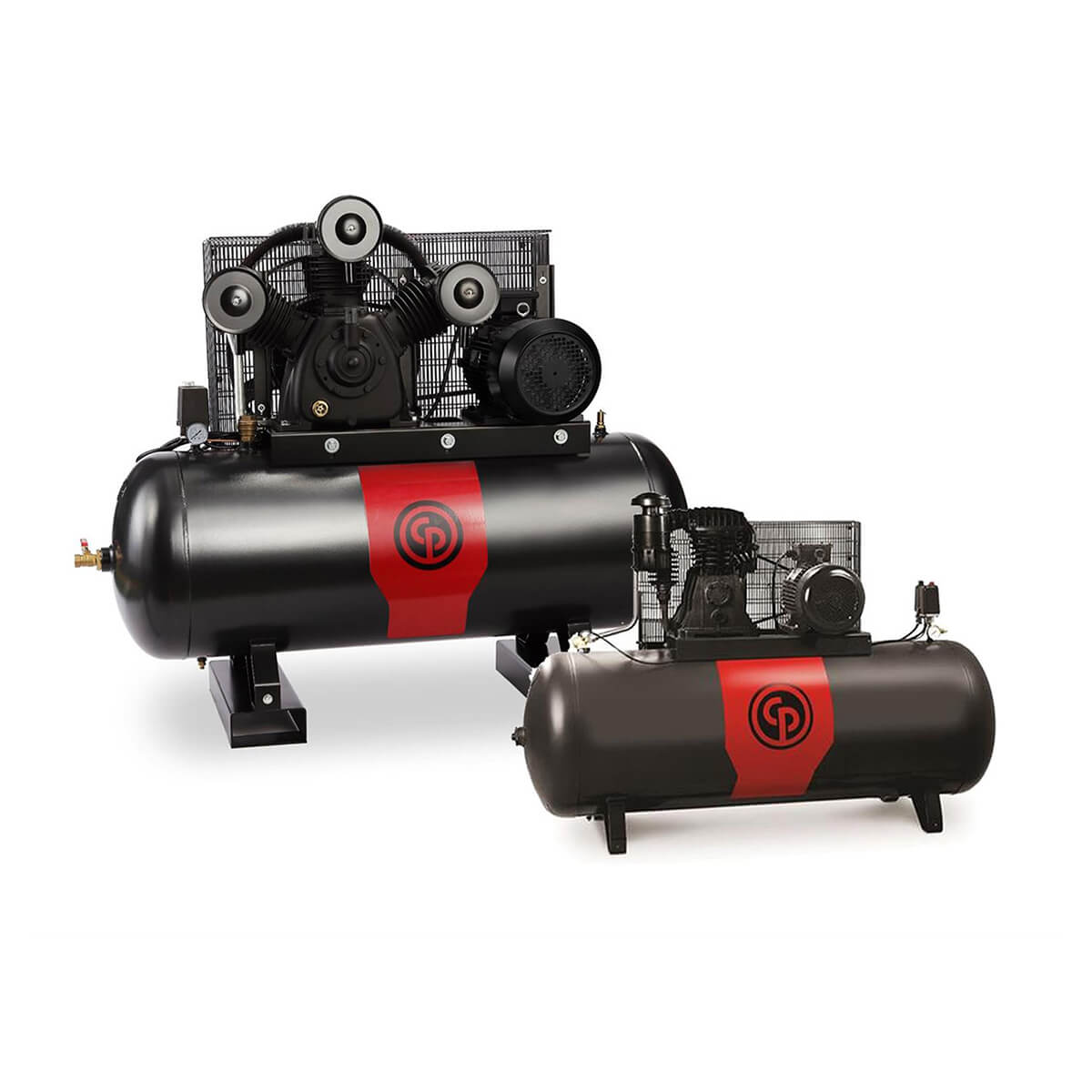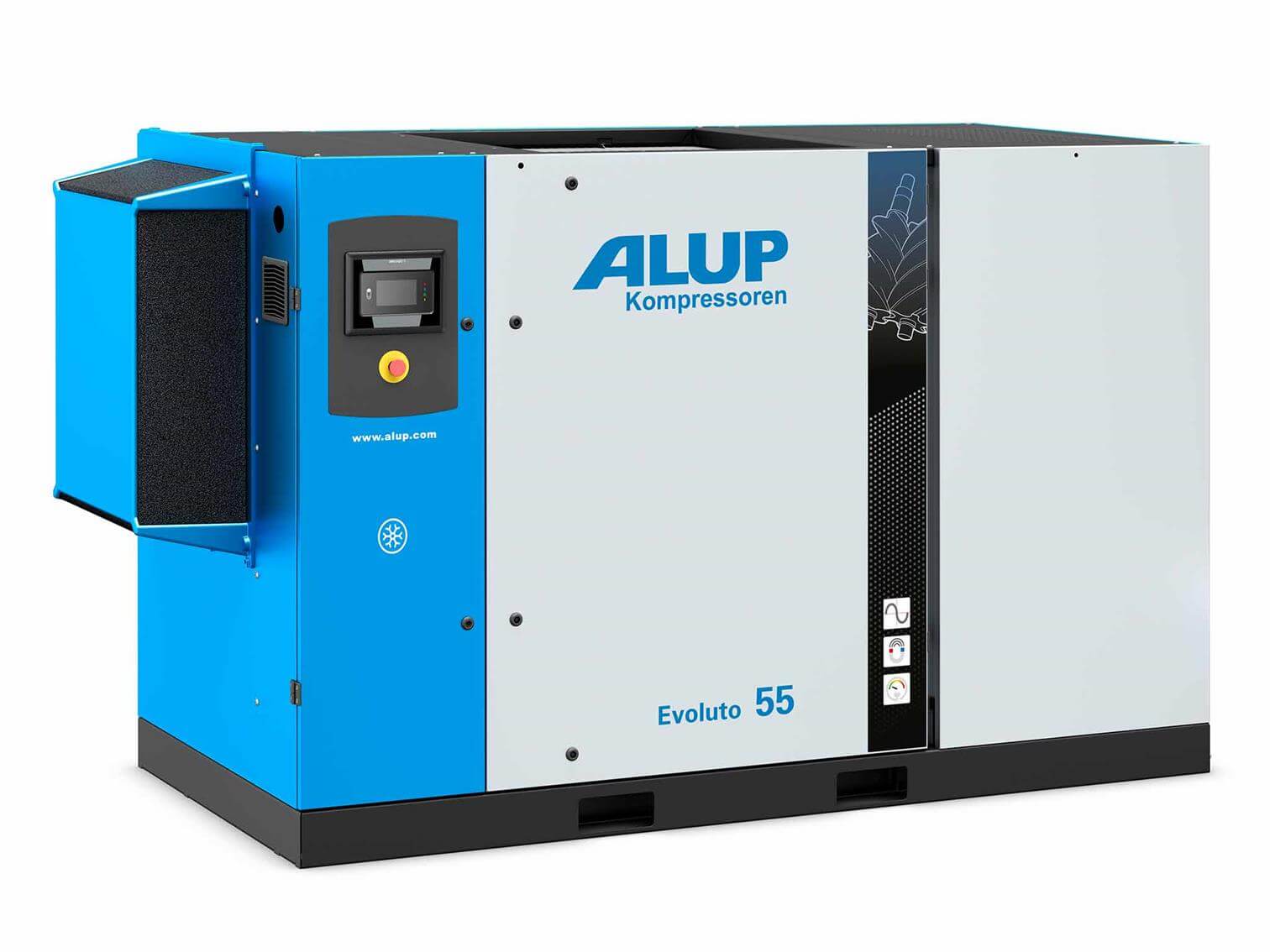Proportioning the Compressed Air Dryer
Trying to figure out which air dryer capacity is best for you? Here are some factors to consider. Read More…
Once you have the size of the air compressor figured out, the next thing to do is to decide on the type of compresor you will need for your application - piston, rotary screw compressor etc. Let us take a look at two of the most popular options available.
Piston compressors are only meant for intermittent use, meaning that the compressor can only work at about 50-60% of its duty cycle. This means it will run 30 to 35 minutes, every hour during its duty cycle. These units require proper cooling time between cycles, otherwise they will overheat and or fail.
It is also important to understand that piston compressors put out a lot of oil downstream and if not treated properly they can
damage the machines that utilize the compressed air. Lastly, piston compressors tend to be very loud when in operation, which can
be hard on the employees working in close proximity to the compressor.

If your operation requires constant compressed air supply, you should consider a rotary screw air compressor. Unlike the piston compressor, rotary screw air compressors are used for any operations that require up to a 100% continuous duty cycle and are built for long lifetime of reliable operation. Rotary screw air compressors are a great alternative fot the piston units and there are various available, depending on your needs and budget. One of those options is the ability to integrate a dryer into the package, which is ideal for the applications that require clean and dry air.
Furthermore, smaller screw compressors can be tank mounted allowing for additional storage capacity which, coupled with an integrated dryer, allows
for plug and play installation. This makes it ideal if you have limited space at your facility and if you want to save on installation
costs. Depending on your budget, there is a screw compressor for everyone, ranging from basic design, usually available on
smaller kW/HP ranges, all the way to Variable Speed (Frequency) Drive (VSD) units. Those are more expensive but typically make
up for the initial cost with energy savings.
Variable Speed Drive compressors are a great option for any facilities that have fluctuation in their flow demand. This is especially true if your facility operates multiple shifts during the day and where flow demand increases and decreases throughout the day. Considering that compressed air usage can be costly, as it accounts for over 70% of Total Cost of Ownership in electricity costs, utilizing VSD technology can help you achieve savings of 35-50%.
Depending on size of the compressor, the savings can range from $100s to $10,000s annually or more. VSD air compressors match the output to the demand that is needed. In simpler terms, the compressor can sense how much flow is being used and adjusts its speed accordingly, to only allow the output that is needed. On slower production days, during second or third (skeleton shifts?) the VSD technology comes especially handy, as it eliminates the waste of electricity and therefore saving money. VSD air compressors are becoming the norm rather than the exception, with many customers enjoying the annual energy savings and having the ability to reinvest the money into other assets.

Ash Air has been around in New Zealand since 1979, and we’ve grown into a nationwide company with international support and a
reputation for quality and reliability.We look after all things compressed air for your business!
Ash Air's range of Chicago Pneumatic, Alup, Pneumatech, and Quincy compressors are used extensively around the world in industries
ranging from oil and gas to food, automotive and farming, and we bring you these world class compressors here in the land of the long white
cloud.Our technicians are compressed air equipment experts and are dedicated to addressing customer needs. Supported by a 13 locations
nationwide, Ash Air offers one of the widest selections of compressed air equipment and parts available today in New Zealand.
With Ash Air compressors, you can count on reliability and high performance for even the most demanding applications. We focus our
efforts on the following:
Talk to the team today:
Do you have an idea for our #expertcorner? Let
us know!
Useful links:
Book Your Compressor Service
Who we are and how Ash Air can help your business!
Reliability and Efficiency
Read more from our #expertcorner
Proportioning the Compressed Air Dryer
Trying to figure out which air dryer capacity is best for you? Here are some factors to consider. Read More…
Maintenance budget: 8 factors to consider
Just like any other equipment, a compressed air installation also requires the necessary maintenance work during its entire lifespan. Even though maintenance costs are only about 5 to 10% of a machine's annual operating costs, failure to budget for maintenance can have potentially disastrous consequences. Read More…
The air dyer is one of the most ignored cooler in the system. A dirty condenser will cause water in the lines, or worse it will cause complete dryer failure. Read More…